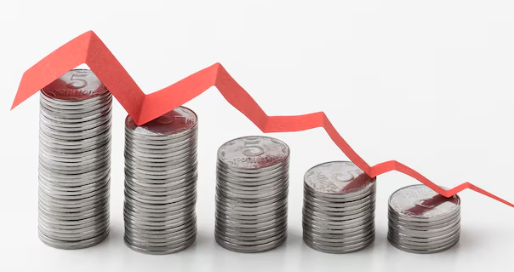AAPL TSLA AMZN #StockMarket #Investing #InflationData #USEconomy #MarketRally #ConsumerConfidence #FinancialNews
How Did U.S. Consumer Inflation Data Ignite a Stock Market Rally? Discover What This Means for Your Investments!
The recent surge in stock market activity can largely be attributed to consumer inflation data, which has sparked renewed optimism among investors. However, amid the excitement, the U.S. government shutdown has left a significant gap in economic data, limiting our understanding of the broader economic landscape. This lack of information means vital indicators, such as the jobs report, remain unavailable, creating uncertainty about future economic conditions. While the consumer inflation figures provide a snapshot of current trends, the absence of comprehensive data complicates the overall economic picture.
Investors should pay close attention to how inflation influences various sectors. Rising prices can impact consumer spending, which in turn affects corporate earnings. The relationship between inflation and stock performance is complex; therefore, understanding these dynamics is essential for making informed investment decisions. Inflation data often serves as a critical barometer for assessing the health of the economy and can trigger significant market movements, as seen recently.
The Impacts of Inflation on Investment Strategies
As we navigate these uncertain waters, it’s crucial for investors to adapt their strategies in response to economic indicators. For instance, if inflation continues to rise, the Federal Reserve may consider tightening monetary policy. Such actions could lead to higher interest rates, which typically negatively impact stock prices. Conversely, if inflation shows signs of stabilization or decline, equities could experience renewed upward momentum.
In light of this situation, investors should focus on sectors likely to benefit from changing inflation dynamics. Consumer staples and utilities are often seen as safe havens during inflationary periods, while growth stocks may struggle. By diversifying portfolios to include a mix of defensive and growth-oriented stocks, investors can mitigate risks associated with inflation fluctuations.
The Importance of Monitoring Economic Indicators
Additionally, the current lack of crucial data underscores the importance of monitoring economic indicators closely. Investors should remain vigilant and keep an eye on upcoming reports, including retail sales and manufacturing data, to gain insights into consumer behavior and overall economic health. Understanding these metrics will help investors make data-driven decisions, ensuring they are well-positioned in the market.
Moreover, the implications of inflation extend beyond traditional stock investments. Investors interested in alternative assets, such as cryptocurrencies and real estate, should also consider how inflation could affect these markets. For more insights on cryptocurrency trends and strategies, check out this relevant section.
Conclusion: Navigating a Complex Economic Landscape
In conclusion, while the recent inflation data has catalyzed a stock market rally, the ongoing government shutdown raises critical questions about the overall economic outlook. Investors must remain adaptable and informed, leveraging available data to navigate the complexities of the current financial landscape. By focusing on economic indicators and adjusting investment strategies accordingly, individuals can better position themselves for long-term success.
Stay updated with the latest developments and market trends by exploring this relevant section. Remember, informed decisions today lay the groundwork for a prosperous investment journey tomorrow.







Comments are closed.